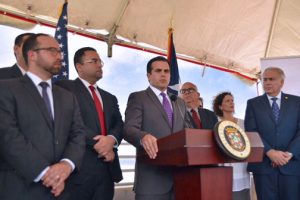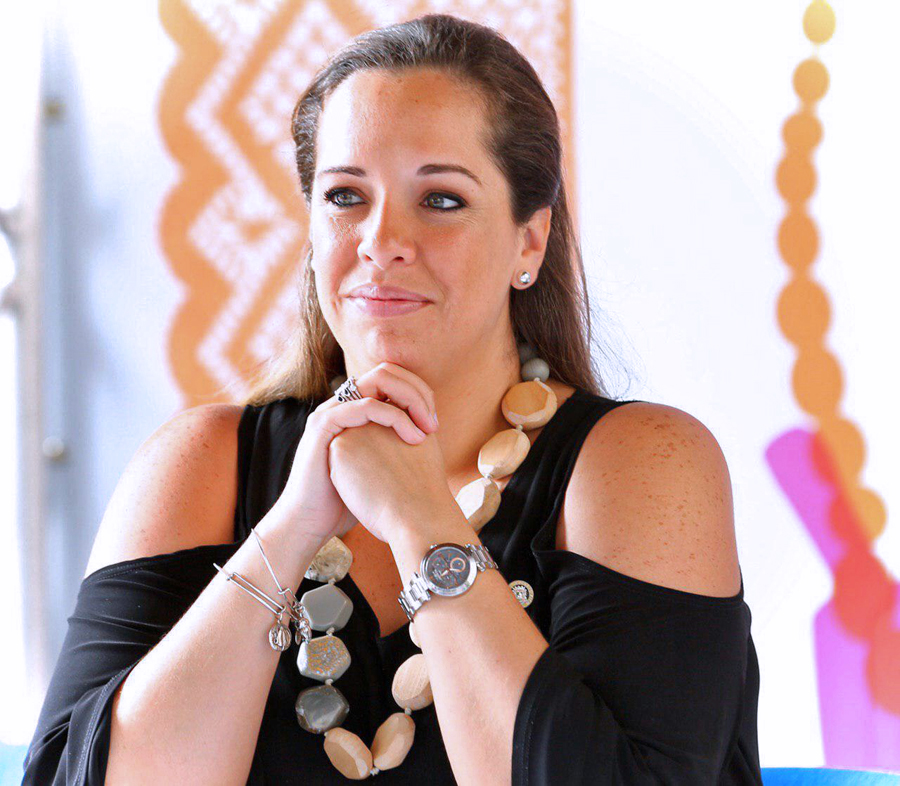Rosselló signs law creating DMO for P.R.


Gov. Rosselló, flanked by lawmakers and tourism sector representatives, speaks about the DMO at a news conference Thursday.
Gov. Ricardo Rosselló met one of his campaign promises Thursday with the signing of the law creating an independent Destination Marketing Organization to handle branding and marketing efforts for Puerto Rico as a tourism destination.
The private, nonprofit entity will run with a $25 million annual budget to be drawn from the hotel room taxes formerly channeled to the Puerto Rico Tourism Co. for marketing efforts.
The DMO duties call for developing a permanent destination brand, promoting Puerto Rico, attracting visitors and increasing the island’s global exposure. The Tourism Company and Meet Puerto Rico currently perform these tasks, without the necessary coordination between them to deliver a cohesive message.
Because marketing the island has been in the hands of the Tourism Co., it has been subject to administrative changes. Hence, marketing strategies were subject to political whims, but will now be based on the needs and trends of the national and global market, La Fortaleza said during the signing of the law Thursday morning.
“Thanks to the commitment and contribution of all sectors and hard work of our legal team, today we fulfill another of our commitments to the people. With this law we’re adopting a successful model in other parts of the world to promote tourist destinations, inserting Puerto Rico in that industry’s modern marketing trends,” Rosselló said.
“This is a new era of growth in tourism. Through the DMO, we will present the new offer from Puerto Rico to the world. So, everyone will know our culture, our natural and human resources and the best of our culinary, entertainment and entertainment industries,” he said.
Lawmakers, agency heads, representatives and dozens of tourism industry employees attended the signing ceremony.
Among those in attendance was Milton Segarra, CEO of Meet Puerto Rico, who applauded the administration for fast-tracking the process to create the DMO — which had been under discussion for the better part of the last decade.
“There were many years of hard work, and many attempts. This is an important step for the industry,” he said. “Now that the law has been signed, executing it properly is key.”
The first steps outlined in the law call for the Tourism Co. to incorporate a public nonprofit corporation that will then be structured to include a board of directors whose members will be mostly from the private sector.
“The key will be to structure the appropriate governance model and a very specific work and execution plan. We have no time to lose because we have an industry, which although is showing signs of recovery, has been badly affected by the economy,” he said.
The first results of the DMO’s efforts should be evident by the end of this year or early 2018, the former Tourism Co. executive director predicted.
One of the most pressing initiatives should be the creation of a permanent brand for Puerto Rico, and the parameters to protect and extend its validity from shifting governments.
“The brand will be the result of professional and permanent decisions that can be efficient and produce more visitors, more occupancy and an economic impact,” Segarra said.
Meanwhile, Miguel Vega, chairman of the Puerto Rico Hotel and Tourism Association, said the DMO will allow leaving behind the “inconsistency” of the brand and quicker reactions to market needs.
“We can react quicker to world events to make sure we can impact the markets we want to, when we want to. We have to spend our money well, especially in times of crisis,” Vega said.
He added that through the DMO, Puerto Rico will be able to successfully decentralize its efforts in the U.S. mainland — the island’s primary tourism market.
“We have to go beyond the five states we target along the Eastern Seaboard. We already have flights to most states, we have underutilized local airports and underutilized hotels. If we market ourselves well, we will see a growth in business that will allow us to succeed in our secondary markets in Europe and Latin America.”
The DMO will have a 13-member board mostly consisting of private sector representatives, as well as an executive director position. The entity is expected to have an initial lifespan of 10 years, renewable for another 10 through an agreement with the Tourism Co., Vega explained.
Tourism Co. Executive Director José Izquierdo, expressed satisfaction with the new law, saying “the structure of the DMO has proven to be one of the best practices in the United States and internationally for the effective promotion of a destination.”
“We…establish a collaboration with various sectors of the economy with the common goal of making Puerto Rico the main destination of the Caribbean,” he said.
“While the DMO will be responsible for promoting Puerto Rico outside our boundaries, we at the Tourism Co. will continue to promote domestic tourism as an engine of economic development,” said Izquierdo.












Great move Governor. Congratulations on making this effective. The PR Hotel Industry has been asking for this for years, and it is great to see it finally happening.
José Campo, CHA. Ex GM Caribe Hilton.